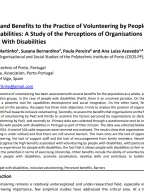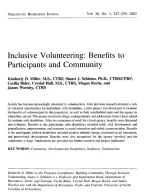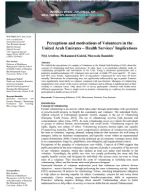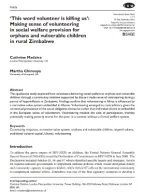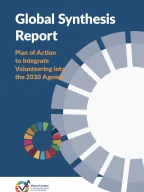What does the evidence say?
Recognition of the contributions of volunteers in intergovernmental dialogue |
|
Integration of volunteering in national SDG strategies and plans |
|
Linkages to specific goals and targets |
We know that volunteers make significant contributions to their economies and societies. However, there are no specific goals or indicators on volunteer efforts in the 2030 Agenda and SDGs. There are a number of potential ways to demonstrate the contributions of volunteering:
|













